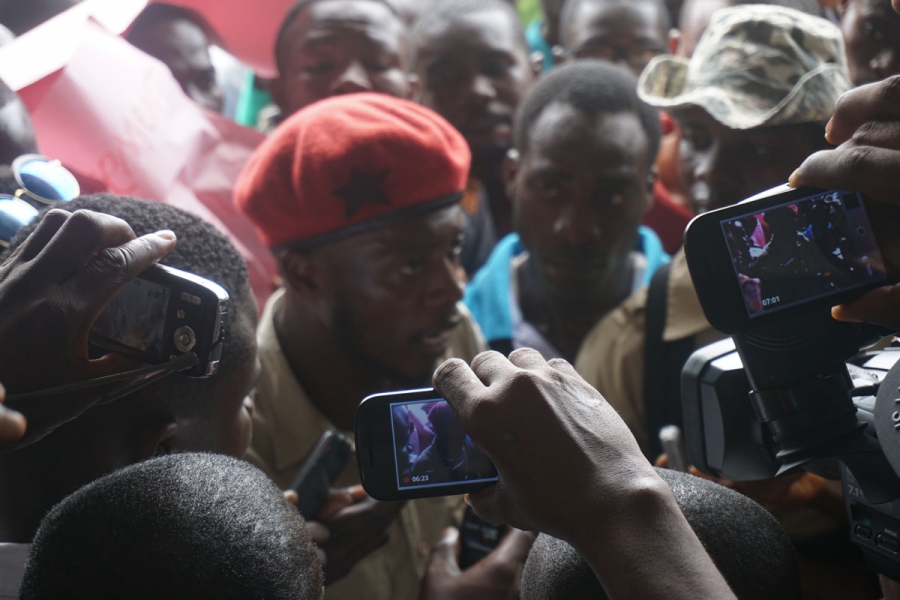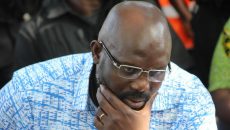As a child, I didn’t have many options for toys. Like most African children, I had to use my imagination to come up with things to play with. Growing up in Danané in Côte d’Ivoire and Ghana’s Buduburam Refugee Camp, my cousins and I would often flatten tin cans and mold them into cars, to which we attached rubber tires crafted out of old slippers. We ran around with these as if they were the latest model of a remote-controlled car.
Once in a while, we would receive money as gifts to buy toys of our choices. One category of toys was always off limits: anything that simulated a weapon – water guns, BB guns, any gun. It was as if all the adults in my family had conspired to use any tactic to keep these toys away from us.
Whenever we yearned for these replica weapons, we received a lecture about where we came from and how we were children growing up as refugees in neighboring countries (and eventually in the U.S.). Our parents repeatedly explained to us how the major cause of our problems was the almighty gun. We had fled a war that had devastated our homeland to the point where we could no longer return, no matter how much we yearned for normalcy.
They drilled this message into our heads repeatedly. Eventually, it morphed from toys into a broader message — the gospel of nonviolence.
I recall being in the U.S., where my cousins and I got into an altercation with a schoolmate. We thought we had given him enough warning and asked him to de-escalate his approach, but he resorted to laying his hands on me. He was swiftly put in check by one of my cousins, who jacked him up against a nearby fence to instill some fear into him.
In my mind, we had done everything right, but when I returned home, my mother scolded me for having been involved. She said I should have walked away and not engaged in a verbal confrontation, even if I didn’t hit the boy and even if he insulted her. She re-emphasized the doctrine of nonviolence again and where we had come from.
I had always assumed that this constant preaching of nonviolence was something that happened to all Liberian children born right before or during the war. Imagine my surprise when I moved back to Liberia and witnessed political rallies, student protests, and other related activities frequently take on hyper-aggressive tones.
Observe any public activities conducted by the University of Liberia’s Student Unification Party or the Coalition for Democratic Change (especially its youth league) and you’ll frequently hear people voluntarily label themselves as “militants†and “revolutionaries.†Most often, these almost exclusively male participants are dressed in military attire, topped off with red berets.
To me, this image seems to clash with Liberia’s quest for peace. With our country’s past steeped in conflict and the nation needing to promote peace and reconciliation, it baffles me that such violent imagery and messaging continue to be peddled by politicians. Worst of all is the fact that such messaging most frequently comes from the party of President George Weah, a man who previously served as a UNICEF Goodwill Ambassador and as Liberia’s Peace Ambassador.
Why would the president condone his partisans adopting violent language and appearances? Is this imagery absolutely necessary to communicate the party’s Pro-Poor Agenda? Would the party lose anything if it adopted a more peaceful and measured stance?
Surely, dressing in outfits made for combat and using violent or “revolutionary†language to speak about your opponent makes you ill-prepared to de-escalate a situation of conflict, should it arise.
It was no surprise, then, to learn that CDC partisans were the major offenders in a riot in Montserrado’s 13th district. Clad in military attire on Saturday and led by their youth wing leader, Mayor Jefferson Koijee, a group of CDC partisans were caught on video terrorizing a neighborhood, resulting in the injury of some opposition supporters.
Is it not time that President Weah calls on his partisans to tone down the violent rhetoric and the militarist imagery? Such behavior should certainly not come from the party’s leadership. The president needs to heed the advice of my parents and remember where Liberia came from. If he won’t implement the recommendations of the Truth and Reconciliation Commission report, let him at least take proactive steps to ensure that the actions of his supporters don’t drag us into another conflict.
This is serious. Not only must Weah demonstrate leadership and set his partisans straight, but the international community should also condemn such thuggish acts by a sitting mayor and youth chairman of the ruling party. A call for the establishment of a war and economic crimes court in Liberia would be an appropriate response.
The gospel of nonviolence as taught by a humble family of war refugees says that how we act, dress, and speak has the power to either escalate or de-escalate any given conflict. Playing with toy guns may seem harmless at first; wearing a red beret may look impressive at first, but the messages sent are those of aggression, which begets more aggression. The president needs to heed the advice of my parents and remember where Liberia came from. It’s time to heed the gospel of nonviolence.
Featured photo by Jefferson Krua



